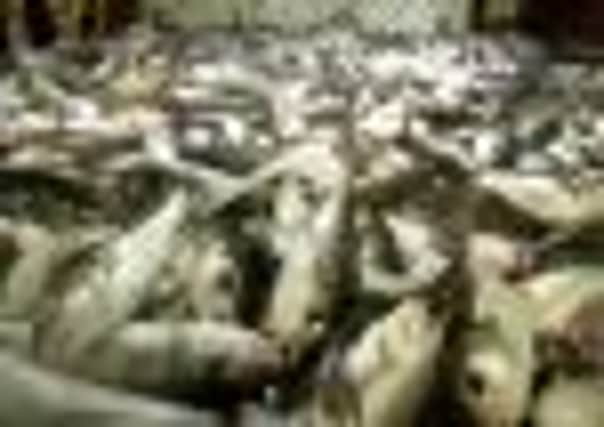Fined trawler firm accused of risking crews’ lives


• Scottish fishing firm TN Trawlers fined almost £150,000 and condemned for risking crews’ safety in series of safety breaches
• Firm had authorised numerous modifications to vessels that were in breach of safety rules
Advertisement
Hide AdAdvertisement
Hide AdThe fines were imposed on Annan-based TN Trawlers and directors Thomas and Christopher Nicholson at Southampton Crown Court following a lengthy investigation by the Maritime and Coastguard Agency.
The offences related to three vessels owned by the company, the Olivia Jean, Philomena and Georgelou N and covered a period between November 2009 and June 2011.
The court was told that investigators from the Maritime and Coastguard Agency found that unauthorised modifications had been made to the Olivia Jean.
These included the addition of a crane on a raised platform, holes in the forward watertight bulkhead to take larger conveyor belts and the addition of a generator set which was positioned over an access hatchway in the forecastle space.
The scallop dredger was only authorised to use 14 dredges but records indicated 18 were in use. Examinations of the same records also showed that the Olivia Jean was carrying more deck cargo than permitted in its stability rules.
The vessel also operated under an exemption allowing the removal of the rescue boat if a crew of six or less was on board. But eight crewmen were on board the vessel.
Checks on the Philomena also unearthed a series of defects including an out of date radio and safety survey.
No crew qualifications or safety training details were available and in 2010 the Philomena sailed from Hartlepool without a valid International Fishing Vessel Certificate.
Advertisement
Hide AdAdvertisement
Hide AdThe Georgelou N grounded in the River Mersey in April 2011 following mechanical failure. An inspection by the MCA identified problems with crew certification and the numbers of crewmen on board being more than permitted by the amount of safety equipment on the vessel. A further inspection in July 2011 highlighted problems with crew certification and safety training. It also showed that the intermediate survey for the vessels safety certificate was overdue.
Imposing the fines, Judge Peter Ralls QC said: “The numbers of injuries and deaths at sea are concerning. The likelihood of death is greater than in the agricultural or construction industry. Fishing vessels operate in a harsh and uncompromising environment. Great care needs to be taken in that vessels are in a safe condition at all times. It is the owner’s responsibility to those that they employ. In relation to this case, it is only right that they should pay the costs of the Maritime and Coastguard Agency - that agency does very important work.”
Captain Jeremy Smart, the MCA’s head of enforcement, condemned the company’s safety record after the hearing.
He said: “TN Trawlers and its directors failed to heed previous warnings and advice from the Maritime and Coastguard Agency. The standard of care was far below what is expected, and the failings could have led to loss of life or serious injury.
“This blatant disregard for safety standards is one of the worst that the MCA has come across in past years and we are pleased that this view has been supported by the sentence of the court”
Ca[pt Smart added: “The fishing industry is well known for its high levels of risk and dangers. Accordingly proper attention to health and safety matters is of the very highest importance in the industry and a few poorly managed vessels can give the industry a bad name. We will not tolerate this behaviour where financial gain seems to be more important than the value of human life.”
Three years ago a report published by the Government;s Marine Accident Investigation Branch accused the TN Trawlers of displaying a “total disregard” for the safety and welfare of their employees following an investigation into an accident in October, 2009, in which a crewman on the Olivia Jean was injured by a falling chain wire on board the vessel.
The AAIB report stated: “The wire parted as the trawl beam was lifted inboard. The wire was not adequately checked by the crew and it probably failed because it was worn and brittle. This was the second time
Advertisement
Hide AdAdvertisement
Hide Adthat a crewman on board had been seriously injured as a result of a parting wire, and the fourth time that this vessel’s trawl wires are known to have failed.
“An examination of Olivia Jean also found poorly maintained fishing equipment and no evidence of systematic planned maintenance; the vessel failed stability criteria for a number of structural reasons and was being operated in a manner that further reduced stability margins, and nine crewmen were on board, despite the vessel being limited to a maximum of six.”
The report continued: “From the state of the vessel, and the way in which it was being operated, it could be construed that the owner was showing a total disregard for the safety and welfare of his employees and share-fishermen on board.”